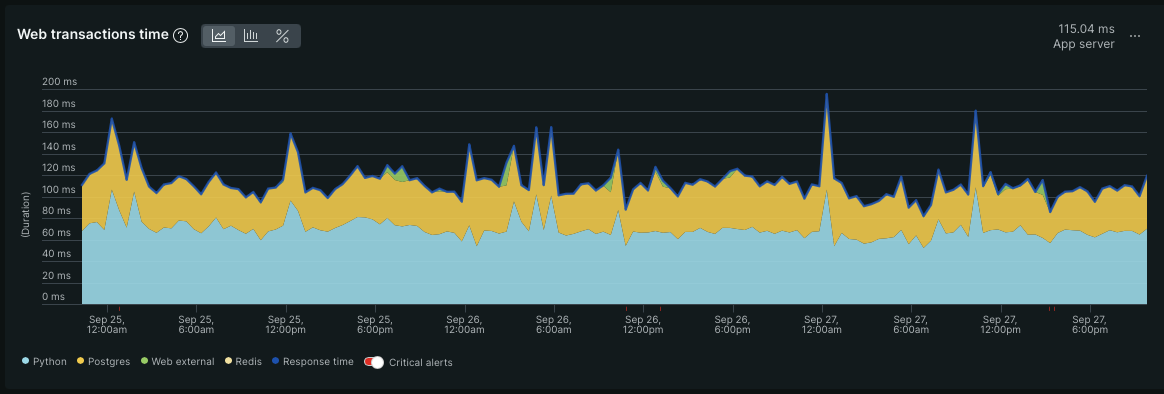Migrating Gunicorn to Granian
I migrated one of my Django apps from Gunicorn to Granian yesterday. Here is how the migration went and some of my thoughts on Granian and Gunicorn.
Migration
This is the second time I attempted to try out Granian. The first time I got blocked because Granian didn’t support unix sockets. I run several Django apps on the same host behind Nginx, and I’m using Unix sockets for communication between Nginx and Gunicorn. I could have switched to using ports, but I didn’t want to mess with Nginx for this experiment.
Since then, Granian has added support for Unix sockets, so this is no longer a blocker. In fact, all the Gunicorn settings that I was using had their equivalent in Granian, including the ability to set the process name (again, extremely useful when running multiple Django Apps on a single host).
This was my existing gunicorn.conf.py file:
proc_name = "fedidevs"
bind = "unix:fedidevs.sock"
workers = 4
threads = 4
I started the Gunicorn process with:
gunicorn fedidevs.wsgi
Since Granian doesn’t have a dedicated setting file it’s now all a single command:
granian \
--interface wsgi fedidevs.wsgi:application \
--process-name fedidevs \
--uds fedidevs.sock \
--workers 4 \
--blocking-threads 4
Performance
Granian is written in Rust, so it should be faster than Gunicorn, which is in pure Python. Granian’s benchmark says that Granian should be about 10ms faster than Gunicorn Gthread for WSGI.

However, as we can see from the response times on my app above, there appears to be no change in response times. You can’t even tell where on the chart I switched from Gunicorn to Granian.
This is probably because Gunicorn (and now Granian) was already running behind Nginx, so all the request scheduling was already done by the efficient Nginx C code before it reached Gunicorn’s Python code.
Docs
Grenian doesn’t have a dedicated docs page like Gunicorn, but the Readme is comprehensive. I enjoyed reading the Workers and threads section, and I feel it provides better guidance than Gunicorn’s How Many Workers? and How Many Threads? sections, which feel a bit dated.
Request timeouts
I was hoping that Granian’s --blocking-threads-idle-timeout would kill requests that have been running for too long. Unfortunately, it seems to work like Gunicorn’s --timeout parameter and only kills workers that have stopped responding.
Not useful if you end up with a bunch of idle requests because a third-party service stopped responding. The only solution for this is to add timeouts to all I/O operations of your application rigorously.
Fin
If you enjoy trying out new things, do give Granian a go; it’s a wonderful project. Your existing projects can continue using Gunicorn. You probably won’t see a big difference after the migration.